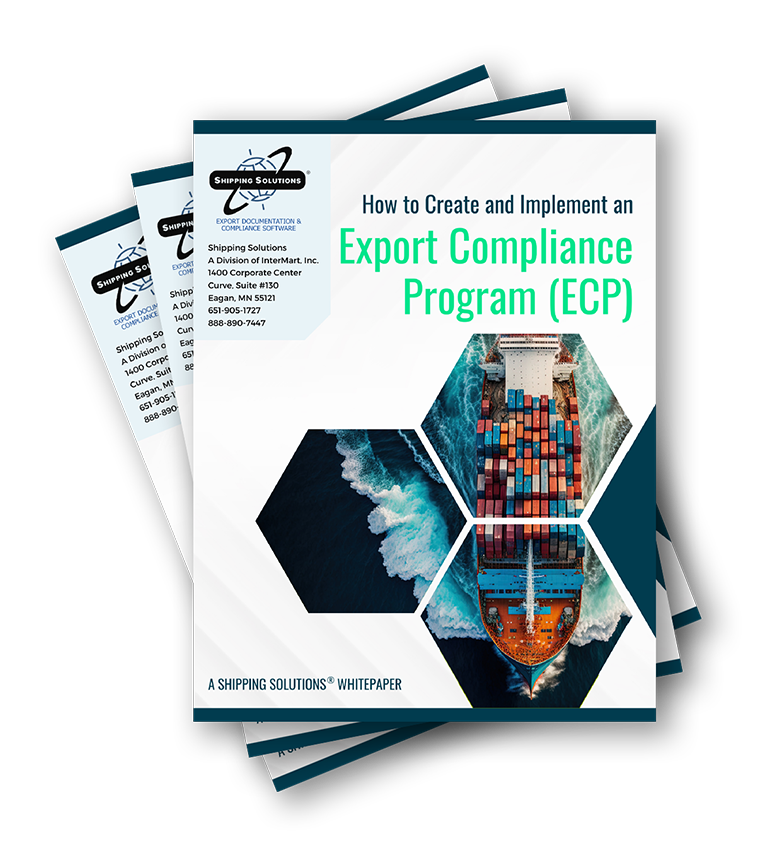The International Trade Blog Export Compliance
4 Reasons to Audit Your Company’s Export Procedures
On: November 30, 2016 | By:  David Noah |
5 min. read
David Noah |
5 min. read
 When’s the worst time to realize you don’t have a backup plan?
When’s the worst time to realize you don’t have a backup plan?
When you’re in the midst of a problem.
I recently spoke to an IT professional who was struggling to restore a new client's server after they had a massive data loss. Like many companies, they had created a backup plan for their company's data, but they never went through the process of restoring their backed-up data to make sure it worked properly. Unfortunately, they learned too late that it did not.
There’s a corollary to this for exporters: The worst time to be thinking about how to handle an audit is when an agent from the Office of Export Enforcement shows up at your door.
This year, make it different. Make it a priority to audit your company's export compliance procedures before an issue arises. Here’s what you need to know to get started.
Why You Should Audit Your Company’s Export Procedures
1. An audit is already part of your ECP.
An internal audit is part of a strong Export Compliance Program (ECP). If you have an ECP, but you’re not following it, it’s a waste.
Don’t have an ECP yet? Stop what you’re doing right now and start creating one.
Just as your written manual is the basis of your compliance training program, your export compliance audit plan is an important subset of that plan that goes into even greater detail. By including pertinent policies and step-by-step procedures, you'll prepare your company and employees for the unknown and feel confident in your process should you ever be subject to an export compliance audit.
2. Doing your own audit prepares you for an audit by a government official.
You and your staff need to discuss a plan detailing what you will do if you are audited. An internal audit helps demonstrate that you’re doing your due diligence. It’s not enough to create an ECP—you must show that you’re following it.
There are three major components to include in your plan:
- Identify everyone who should be notified in case of an audit.
- Identify where your records and export documents are located or stored.
- Identify how the audit plan fits into your whole export management and compliance program.
You can find out more about doing your own audit in our article Surviving an Export Compliance Audit: 3 Key Steps.
3. It helps guarantee your staff is following procedures and can help you identify training opportunities.
An audit of your company’s export procedures will show you who’s doing what they’re supposed to, who’s not, and what types of training you need to provide to make sure your whole office is on the same page.
Another aspect to consider: Things change. Products change, regulations change, trade terms change, customers change, employees change. Nothing in business stays the same forever, nor should it!
Internal audits help you see what’s working well and help you gauge the current reality of your business. You can then make any necessary changes to adapt your business to best practices.
4. Audits make people accountable.
In addition to your internal staff, audits give you an opportunity to evaluate your external partners and processes in order to hold them accountable. This includes:
- Freight forwarders and other vendor partners. Audits help ensure your partners are doing their job efficiently, cost-effectively and in compliance with the law.
- Foreign partners. Audits of foreign partners help you stay on top of the Foreign Corrupt Practices Act and ensure you have no violations in that area.
- Salespeople and foreign distributors. Audit them to make sure your company isn’t violating embargoes or ignoring export license requirements. You can learn more about this in our article Six Basic Steps for Export Compliance.
In addition to partners, there are specific processes you should be auditing. These processes include:
- Staying current with import-export product classification numbers.
- Making sure your documents are accurate. If not, your goods may get held up in customs, and you might not get paid on time. You should also verify that you’re providing all the documentation your foreign customers need.
- Auditing the rules of origin if you’re taking advantage of a free trade agreement (FTA). You should be auditing the rules you’re using to ensure your goods still qualify under different FTAs and to make sure nothing’s changed in your sourcing of parts.
- Making sure your Electronic Export Information (EEI) filings through the Automated Export System (AES) are submitted properly, whether or not you’re doing them or relying on a third party to file on your behalf. The Automated Commercial Environment (ACE) platform makes this easier than ever. After you register, you can simply log in to the platform and use reports to see what’s getting filed by third parties using your tax ID number.
How To Audit Your Company’s Export Procedures
There’s no one-size-fits-all answer to how you should audit your company’s export procedures, but there are two important options.
Internally
The internal audit is a do-it-yourself method that helps you get your hands dirty and work through the process of what your company’s procedures should be and how they should be measured.
Externally
If you don’t know exactly how to get started, the right way to audit, or the best metrics to use, an external audit may be helpful to you. A third party or consultant, for example, ensures a fresh set of eyes and objectivity so you can see how to improve your processes (even if they are working).
How often should you audit?
How frequently to audit your company’s export procedures depends on the size of your company, your volume of exporting, and your risk tolerance. Big companies should perhaps do this quarterly (three times internally and once externally). Smaller companies should audit internally once a year and then bring in an outside person once a year (or every other year). Whatever you decide should be detailed in your ECP.
Following your self-audit, you should make sure to update your documentation. If something is onerous, you should make the change to the audit checklist, your ECP, or both.
Like what you read? Subscribe today to the International Trade Blog to get the latest news and tips for exporters and importers delivered to your inbox.

About the Author: David Noah
As president of Shipping Solutions, I've helped thousands of exporters more efficiently create accurate export documents and stay compliant with import-export regulations. Our Shipping Solutions software eliminates redundant data entry, which allows you to create your export paperwork up to five-times faster than using templates and reduces the chances of making the types of errors that could slow down your shipments and make it more difficult to get paid. I frequently write and speak on export documentation, regulations and compliance issues.


